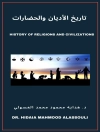In ‘An Exact Exposition of the Orthodox Faith, ‘ John of Damascus presents a comprehensive synthesis of Christian doctrine, articulating the faith within the frameworks of philosophy and theology. Written in a clear and systematic style, this work serves as both a theological treatise and a catechetical manual, intended for both scholars and laypersons. John’s writing reflects the rich intellectual tradition of the Byzantine Empire, effectively addressing theological controversies of his time, such as the nature of Christ and the importance of icons, thereby solidifying the Orthodox understanding of these essential tenets. John of Damascus, a prominent theologian of the 8th century, was deeply influenced by his background in both Islamic and Christian cultures, as well as his education in a variety of philosophical traditions. Living in a time when the Byzantine Empire was under threat from Islamic conquests, John’s steadfast defense of Orthodox Christianity epitomizes his commitment to preserving the faith. His ecclesiastical career and scholarly pursuits fostered a unique perspective that combined rational inquiry with theological rigor, enabling him to address the complexities of faith with clarity and conviction. ‘An Exact Exposition of the Orthodox Faith’ is essential for readers interested in the intersection of faith and reason. Scholars of Christian theology, history, and philosophy will find this work not only a crucial resource for understanding the foundations of Orthodox beliefs but also a testament to the enduring legacy of John of Damascus as a theologian. An engaging exploration into Christian doctrine awaits those eager to glean insights from one of the most pivotal figures of early medieval theology.
A propos de l’auteur
John of Damascus, also known as St. John Damascene, was a prominent theologian and polymath of the early 8th century, revered in both Eastern Orthodoxy and the Western Church. Born into a wealthy Christian family in Damascus circa 676-749 AD, under the rule of the Umayyad Caliphate, he received a diverse education that incorporated both Islamic and Christian scholarship. Before devoting his life to theological work, John served as a chief counselor to the caliph. His voluntary departure from a life of political prestige to enter the monastery of St. Sabbas near Jerusalem marked the beginning of his influential ecclesiastical career. John of Damascus is best remembered for ‘An Exact Exposition of the Orthodox Faith’ (ἔκδοσις ἀκριβής τῆς ὀρθοδόξου πίστεως), a comprehensive summation of the Christian faith and a cornerstone of Eastern Orthodox theological literature. In this work, he presents a methodical and thorough discourse on the doctrinal teachings of Christianity, synthesizing Holy Scripture, Patristic teachings, and philosophical thought of the time. His defense of the veneration of icons against the backdrop of the Iconoclastic controversy is particularly noteworthy. The literary style of John of Damascus combines rigorous argumentation with eloquence, reflecting his wide-ranging intellectual background. His writings have had a substantial impact on the development of Christian dogma and continue to be studied for their theological depth and clarity. In recognition of his contributions, he has been granted the honors of Doctor of the Church in Roman Catholicism and Saint with a feast day on December 4th in the Eastern Orthodox Church.




